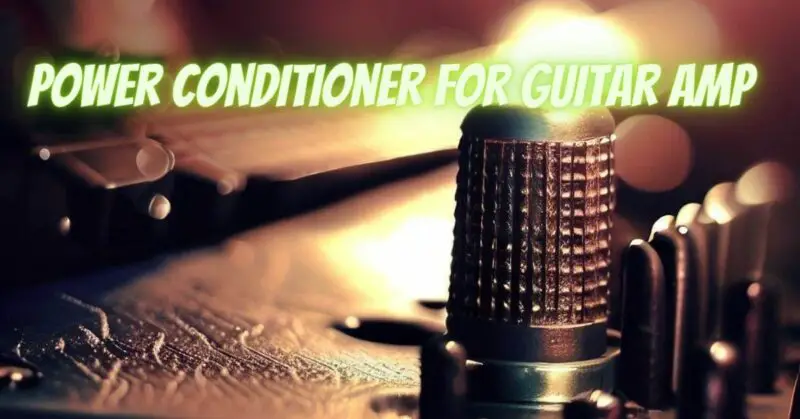The world of guitar amplification is often associated with a quest for the perfect tone, and many guitarists invest in various components to enhance their sound. One such accessory that often raises questions is the power conditioner. Is a power conditioner for a guitar amp really necessary, and what exactly is its purpose? In this article, we will explore the role of power conditioners in guitar setups and help you determine if one is essential for your needs.
What Is a Power Conditioner?
A power conditioner is an electrical device designed to improve the quality and reliability of electrical power supplied to audio and electronic equipment. It serves several functions:
- Voltage Regulation: Power conditioners stabilize the voltage supplied to your equipment. Fluctuations in voltage, known as voltage spikes and drops, can damage sensitive electronic components and affect the performance of your guitar amp.
- Surge Protection: Power conditioners typically incorporate surge protection features to safeguard your gear against voltage surges, such as those caused by lightning strikes or power grid disturbances. This protection helps prevent damage to your amplifier and other connected devices.
- Noise Filtration: Power conditioners often include noise filtration circuits that eliminate or reduce electromagnetic interference (EMI) and radio-frequency interference (RFI). These interferences can introduce unwanted hums or buzzes into your guitar signal.
- Power Distribution: Some power conditioners also function as power distribution units, offering multiple outlets to plug in various pieces of equipment. This feature helps organize and streamline your guitar setup.
Do You Need a Power Conditioner for Your Guitar Amp?
The necessity of a power conditioner for your guitar amp depends on several factors:
- Performance Venues: If you frequently perform in venues with unstable power sources, such as clubs with old wiring or outdoor stages, a power conditioner can help protect your equipment from voltage fluctuations and surges.
- Recording Studios: In recording studios, where pristine audio quality is crucial, power conditioners can help minimize unwanted noise and ensure consistent voltage.
- Home Use: For casual home practice or small gigs with stable power sources, a power conditioner may be less essential. However, it can still provide an extra layer of protection for your gear.
- Sensitivity to Noise: If you are using high-end amplifiers, effects processors, or recording equipment, you may be more sensitive to noise and interference, making a power conditioner a valuable addition to your setup.
- Budget: Power conditioners vary in price, and higher-end models can be relatively expensive. Consider your budget and the value you place on protecting your gear when making a decision.
A power conditioner for a guitar amp can offer valuable protection against voltage fluctuations, surges, and unwanted electrical noise. Whether it’s necessary for your setup depends on your performance venues, the sensitivity of your gear to noise, and your budget.
While power conditioners can be a worthwhile investment, especially in less stable environments, they may be considered optional for more controlled settings. Ultimately, the decision to use a power conditioner should align with your specific needs and the importance you place on preserving the integrity of your guitar amp and signal chain.


